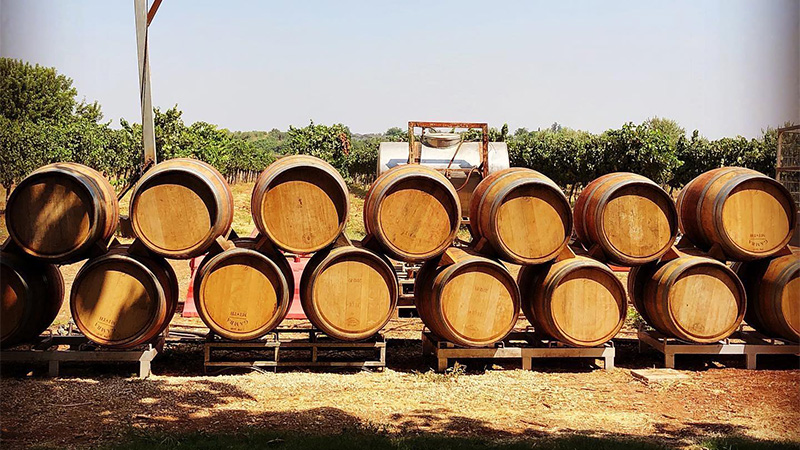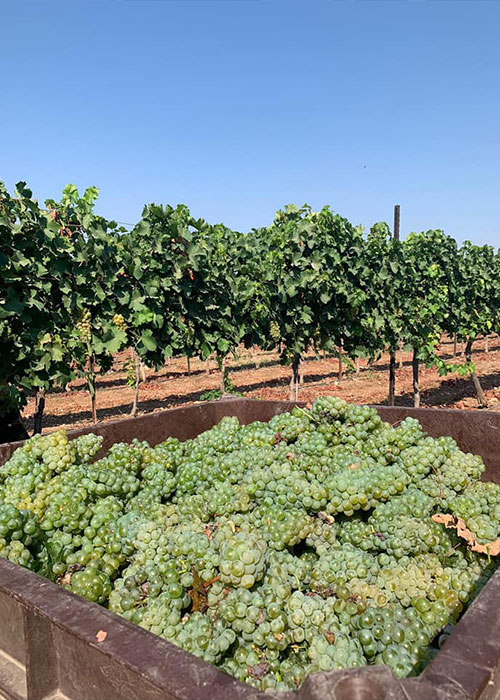As Israel begins to reopen to tourists and pandemic restrictions ease, the Israeli Ministry of Tourism looks for new ways to market itself to visitors. The nation has long been a religious and historical destination, but rarely is it thought of as a wine destination. That honor goes to places like Tuscany or Bordeaux. Yet, says Anat Aviya Naya, wine tourism brand manager for the Israeli Ministry of Tourism, Israel has a lot to offer both the serious oenophile and the casual tippler.
“We have a culture and a history of wine here,” Naya says. “We have more than 300 wineries in Israel, and the wine we are making gets rave reviews.”
There are more than 50 wineries in the Jerusalem area alone, with some of them built in areas where wine was made by settlers thousands of years ago. At the Bin Nun winery in Kfar Bin Nun in the Ayalon Valley, ancient wine presses dot the area between the vines.
Don’t miss a drop!
Get the latest in beer, wine, and cocktail culture sent straight to your inbox.
“You peek under the ground, and history is there,” Talia Yashuv of the Hebrew University of Institute of Archaeology says. “We are going back to a land that knows how to grow vines.”

The co-founder of the Bin Nun Winery, Dr. Danny Yaniv, is a physician who also has a passion for wine. “You get a feel for the ancient landscape,” he says, holding a glass of the winery’s Reserve 2019, a Bordeaux-style blend of Cabernet Sauvignon, Merlot, Petite Sirah, and Petit Verdot. “We are standing in an area where they used to make wine 3,000 years ago.”
While the Israeli wine industry has ancient roots, there was a winemaking gap of hundreds of years, when the Muslim Ottoman Empire was in power. According to Islam, even touching alcohol is forbidden, and the wine industry in what is today Israel languished.
It was only in 1882, when the Carmel Mizrachi winery was established by Baron Rothschild, that Israel’s modern wine industry began. And in truth, it was only in the 1990s with the Golan Heights winery that Israeli wine could compete on an international scale.
Israeli wine still has a marketing problem, though, as the country’s wines are often placed in the kosher aisle next to the cloyingly sweet Manischewitz. While most, although not all, Israeli wine is kosher, almost all of it is dry wine made from international grapes like Cabernet Sauvignon and Merlot. (Israelis tend to prefer red wine even though the Mediterranean climate is more suited to whites and roses.)
At the Bravdo winery in Carmei Yosef, science is king. The winery was started by two professors, Ben Ami Bravdo and Oded Shoseyov. The winery began with just 2,400 bottles in 2001, became kosher in 2009, and today makes 100,000 bottles per year. It is an estate winery, meaning all of the grapes are grown in vineyards owned by the winery.

“Excellent wine is an outcome of excellent agriculture,” says Bravdo’s daughter and marketing manager Hadar Bravdo Elroy. “The soil here is limestone rich with chalk, and there is a big difference in temperature between day and night.”
Some wineries in Israel offer a glimpse of ancient winemaking techniques. At Kadma Winery in Kfar Uriah, which is halfway between Tel Aviv and Jerusalem, founder Lina Slotzkin uses techniques from her native Georgia. The wine is fermented and aged in amphorae (clay jugs) that are imported from Georgia. Wine has been made this way for tens of thousands of years.
In fact, Israeli archaeologists recently discovered the remains of a huge Byzantine winery in Yavneh, which included a factory to manufacture the amphorae in which the wine is fermented. “The fermentation in a clay jug is slower, gentler, and more even, so it takes much longer,” she says. “In a regular winery, fermentation can take 20 days. Here, it takes six weeks.”
These are just three of more than 300 wineries in Israel, a country the size of New Jersey. Most welcome visitors and offer tastings, and many also have restaurants. Israel has long been known for its religious sites and its history. Now, Israeli officials and winemakers hope it will become known for its wine as well.


